Leading the AI transformation of your company
Prof. Gregory LaBlanc, Lecturer, Haas School of Business and Berkeley Law
Watch Now
22:23 Minutes The average reading duration of this insightful report.

Think your enterprise can be a leader without a well-thought business? A business model is necessary for you, as an enterprise leader, to scale your ideas, products, and services and sustain them. Here's your roadmap.
Explore a sneak peek of the full content
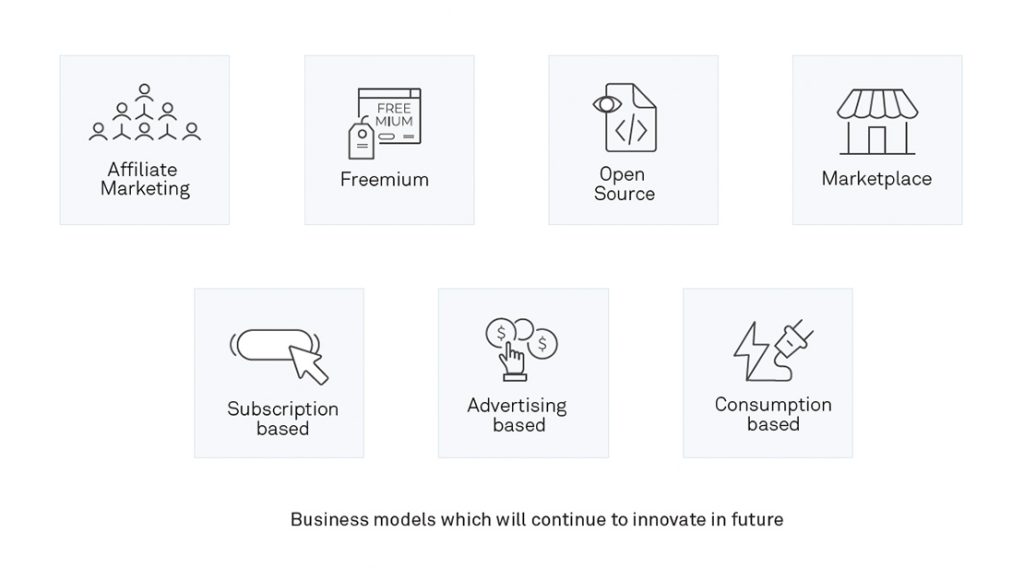
Innovative technologies and novel approaches to conventional business practices are expected to drive business models in the future. Platform-based business models powered by AI, cloud computing, and blockchain are predicted to improve efficiency, streamline operations, and create new revenue streams. Immersive technologies and eco-friendly practices in the experience and creator economy enhance user engagement and provide new monetization opportunities. The machine and API economy leverage AI and automation to reduce operational costs and ensure ethical and responsible use. Platform ecosystems are also expected to support innovation and be built around data platforms used by organizations, customers, vendors, and other stakeholders. Download Complete Research
To stay ahead in today’s market, enterprises must navigate market dynamics, consumer behavior, and technological advancements. A comprehensive business model is critical to their performance, optimizing operations and generating additional revenue sources. It should identify the target audience, market segment, and describe products or services while developing strategies for marketing and sales, assessing costs, risks, and profitability. Platform-based models powered by AI, cloud computing, and blockchain will streamline operations and create new revenue streams. Innovative technologies and eco-friendly practices will enhance user engagement, providing new monetization opportunities while leveraging AI and automation to reduce costs.
In today’s fierce competition, your business model is the compass that guides you to success – set it right, and you’ll sail towards your goals.
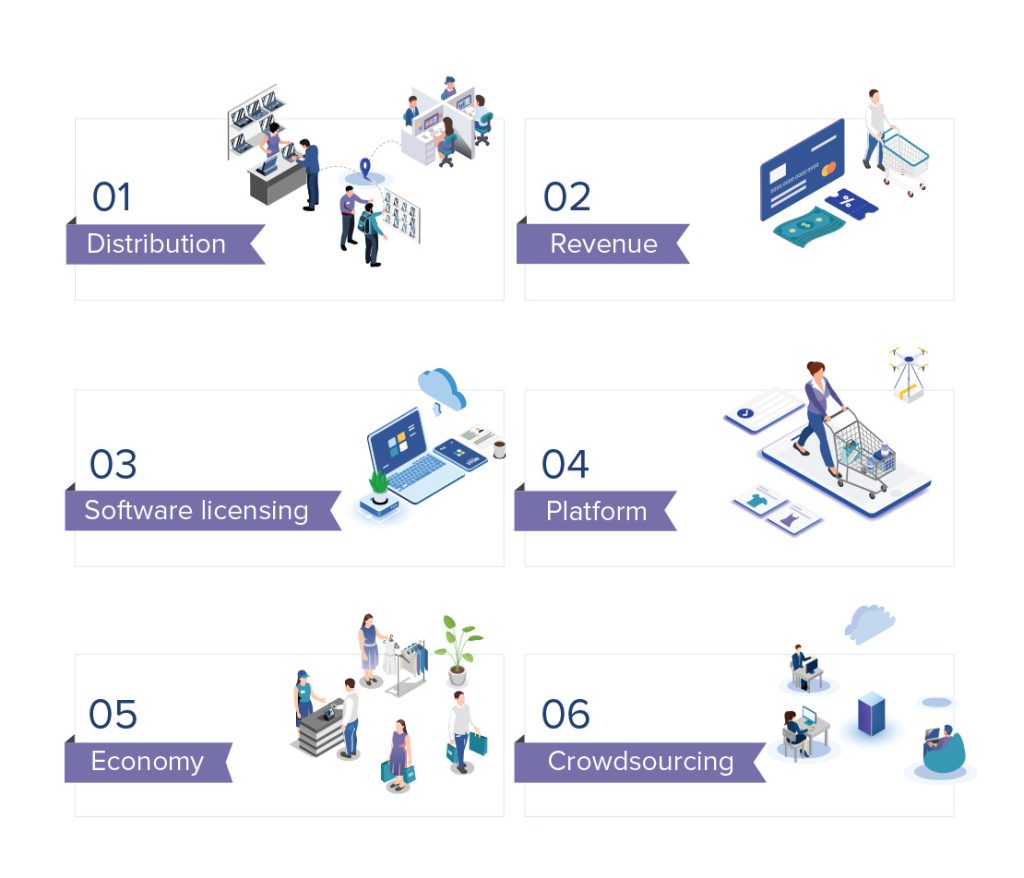
Several business models have emerged based on specific business needs, including e-commerce, subscription, freemium, marketplace, franchise, and direct sales. Each model has unique features and advantages and may overlap with other business model features. Choosing a suitable model can help an enterprise to succeed in a competitive market. Based on research by Wipro Lab45, business models can be categorized based on various parameters such as distribution, licensing, target audience, and technology. We have classified them into six broad categories, as listed below. Most enterprises today follow one or a combination of these models based on their strategic priorities, customer preferences, market demand, and profitability. The categories mentioned are not exclusive but are the most popular. Download Complete Research
Business model strategy refers to the design and development of the business model to create, deliver, and capture value for its customers, while achieving its overall enterprise goals and objectives. Enterprise can create a business model plan that considers all its main business model components, aligns with its aims and objectives, and changes with the market over time by following the eight phases stated below, with interactive and incremental models.
Enterprises that have thrived in the last decade have embraced novel methods to create value and gain a competitive edge. One such method is the ecosystem business model built on a digital platform. Successful ecosystem business models are founded on mutual benefit, co-creation, and collaboration. By focusing on these elements, companies can build a healthy ecosystem that delivers unique value propositions and promotes sustainable growth. Amazon and Airbnb are good examples of prosperous business ecosystems that have used these success criteria. By leveraging technology and data, successful firms have improved efficiency, created new revenue sources, and maintained a competitive edge… Download Complete Research
Credits
Author@lab45: Hussain S Nayak, Poonam Pawar
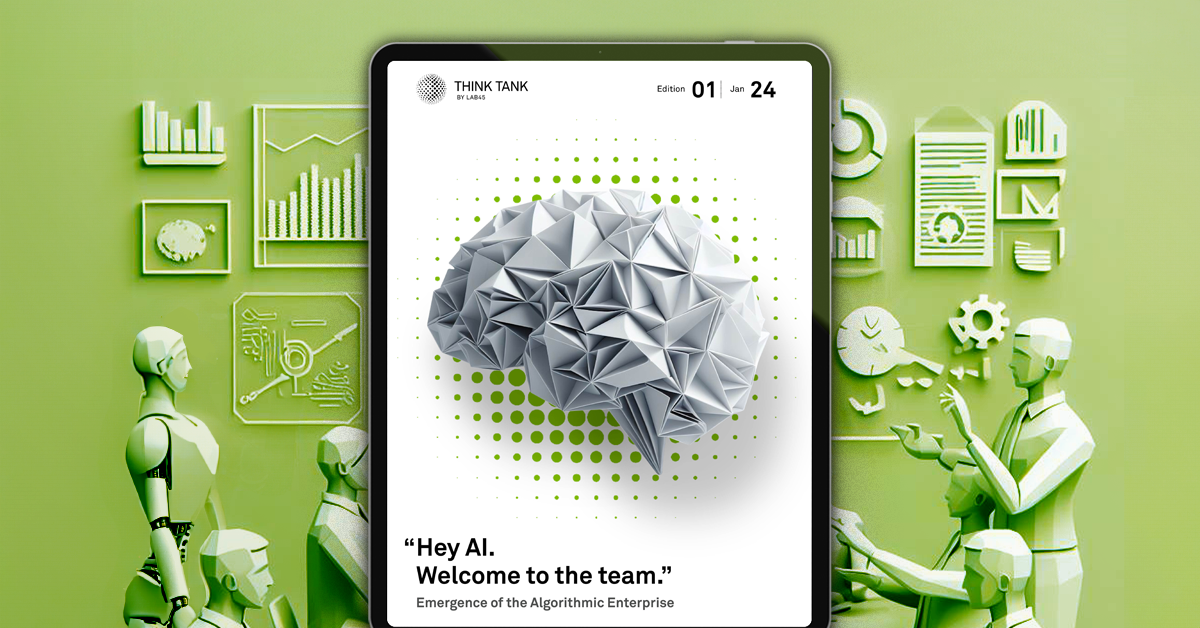
42:08 Minutes The average duration of a captivating reports.

Do we fully understand what it means to be an AI-enabled enterprise? If a company does give primacy to Artificial Intelligence, what does that company look like? What does it take to be such an enterprise? How does it behave? What does its growth path look like and where is it headed? Who will it take along for the ride, and crucially, who will it leave behind? We unpack it for you here.
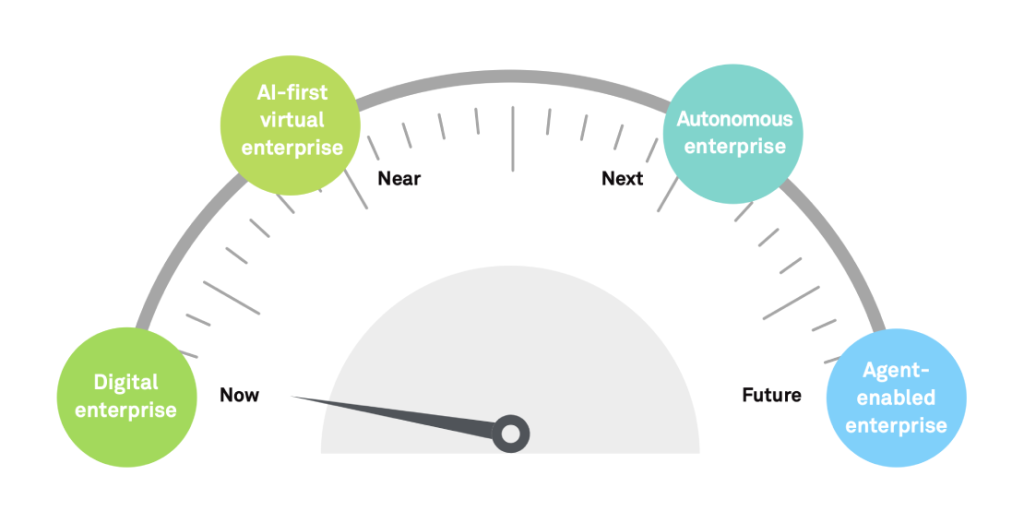
Companies today will begin their journey by becoming the AI-First Virtual Enterprise, evolving into the Autonomous Enterprise and finally into the Agent-enabled Enterprise
AI is now asserting its place as the cornerstone of the modern enterprise: an engine that brings alive a grand human vision by driving innovation, crafting strategy, and powering execution across every business function. To make this happen we are likely to see gigantic leaps in the way innovations scale up to become disruptions.
This point of view evaluates these disruptions, and distills the insights you need to embrace this oncoming change. Download Complete Research
Today’s AI executes tasks designed for humans, better than what humans can do. What if, we start designing tasks to be executed by AI.
We will see a proliferation of new roles that human beings will be required to play in an AI-Enterprise as it evolves. From AI psychologists who understand AI behavior, AI ethicists who guide the ethical aspects of AI behavior, to even AI trainers who train AI in much the same way as we train human apprentices today.
On a scale of 1 to 5, how comfortable are you with having an AI co-worker, or even an AI boss? As AI develops personhood, we will need to grapple with these questions as the culture of organizations evolve within the AI-enabled enterprise. This point of view explores this evolution.
If humans are hired today based on the quality of their 'work experience', how will AI algorithms be hired in the not too distant future? Enter the 'Algo-xperience' - a quantifiable measure by which you can evaluate one AI agent over another. A tangible metric of their past accomplishments, personality, biases and acquired knowledge. This point of view explores how Algo-xperience will play a role in the AI-enabled enterprise. Download Complete Research
Credits
Author@lab45: Nagendra Singh
Contributing Author: Jishnu Dasgupta

23:47 Minutes The average duration of a captivating reports.

Platform ecosystems are defined as open or closed networks where an orchestrator mediates relationships between a diverse set of complementary stakeholders. Orchestrators receive benefit from both accrued value in the platform ecosystem and in barriers to entry that ecosystems create for potential competitors. Platform ecosystems are also defined by a collaborative strategy that aims to create value for all stakeholders, including customers, partners, suppliers, and competitors.
Ecosystem business models offer diverse benefits, as described in part one. A brief summary can be found below:
For enterprises seeking to adopt an ecosystem model, the key factors of success are listed below:
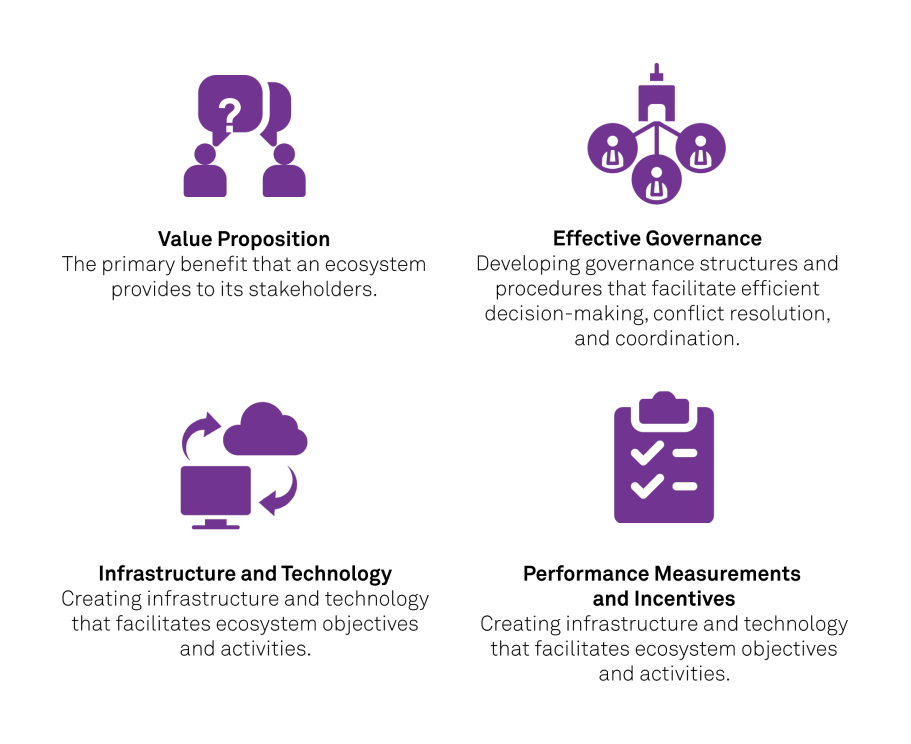
The following are the identified eight steps to develop an ecosystem business model:
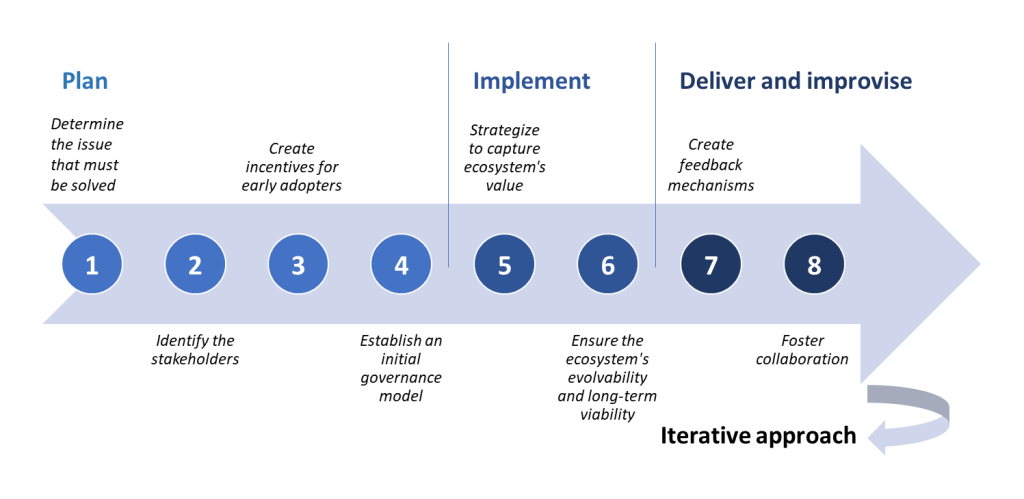
The key trends in ecosystems business models being adopted by enterprises at present are as follows:
Credits
Author@lab45: Poonam Pawar
Contributing Author: Hussain S Nayak
This is your invitation to become an integral part of our Think Tank community. Co-create with us to bring diverse perspectives and enrich our pool of collective wisdom. Your insights could be the spark that ignites transformative conversations.
Learn MoreKey Speakers
Thank you for subscribing!!!
